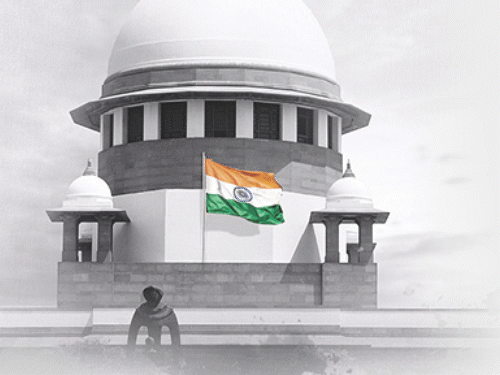The Supreme Court said that it cannot be presumed that the accused had such a desire that the victim commit suicide.
The Supreme Court has said that a person can only be charged with abetting the suicide of another when there is strong evidence. A simple allegation of harassment is not enough for this. This comment was made by the bench of Vikram Nath and PB Varale while hearing a Gujarat High Court decision on December 10.
In fact, the Gujarat High Court had refused to acquit a woman’s husband and in-laws for harassing her and forcing her to commit suicide. The Supreme Court overturned the Gujarat High Court’s decision and acquitted him of the charge of abetting the woman’s suicide.
The Supreme Court’s comment comes at a time when the suicide case of computer engineer Atul Subhash, 34, in Bengaluru is under discussion. In a 24-page suicide note, Atul had accused his wife and family members of harassing him and instigating him to commit suicide. Based on this, the Bangalore police filed a case against him for abetment to suicide.
I know what the problem was…
Hearing the petition challenging the Gujarat High Court order, the Supreme Court said that in 2021, this case was registered under sections 498A (cruelty to a married woman) and 306 (abetment to suicide) of the ‘CPI.
The Supreme Court said that to be convicted under Section 306, there must be strong evidence of intention to instigate a person to commit suicide. Mere torture is not enough to prove that the accused is guilty of abetment to suicide.
The accuser will have to present evidence showing that the accused directly did something that caused the deceased to commit suicide. It cannot be assumed that the accused had such a desire that the victim commit suicide. This can only be proven by evidence.
SC said in a case – Domestic violence article became a weapon for the wife. The Supreme Court has expressed serious concern over the growing trend of implicating the husband and his family members under Section 498-A of the IPC in domestic disputes arising out of marital differences. . Justice BV Nagarathna and Justice N. Kotishwar Singh bench, while dismissing a similar case on December 10, said Section 498-A (domestic torture) had become a weapon to settle scores of wife and his family.
The Supreme Court made the comment in a case related to Telangana. In fact, a husband had filed for divorce from his wife. Against this, the woman filed a complaint of domestic cruelty against her husband and his in-laws. The husband approached the Telangana High Court objecting, but the court refused to quash the case registered against him. After this, the husband took refuge in the Supreme Court.

